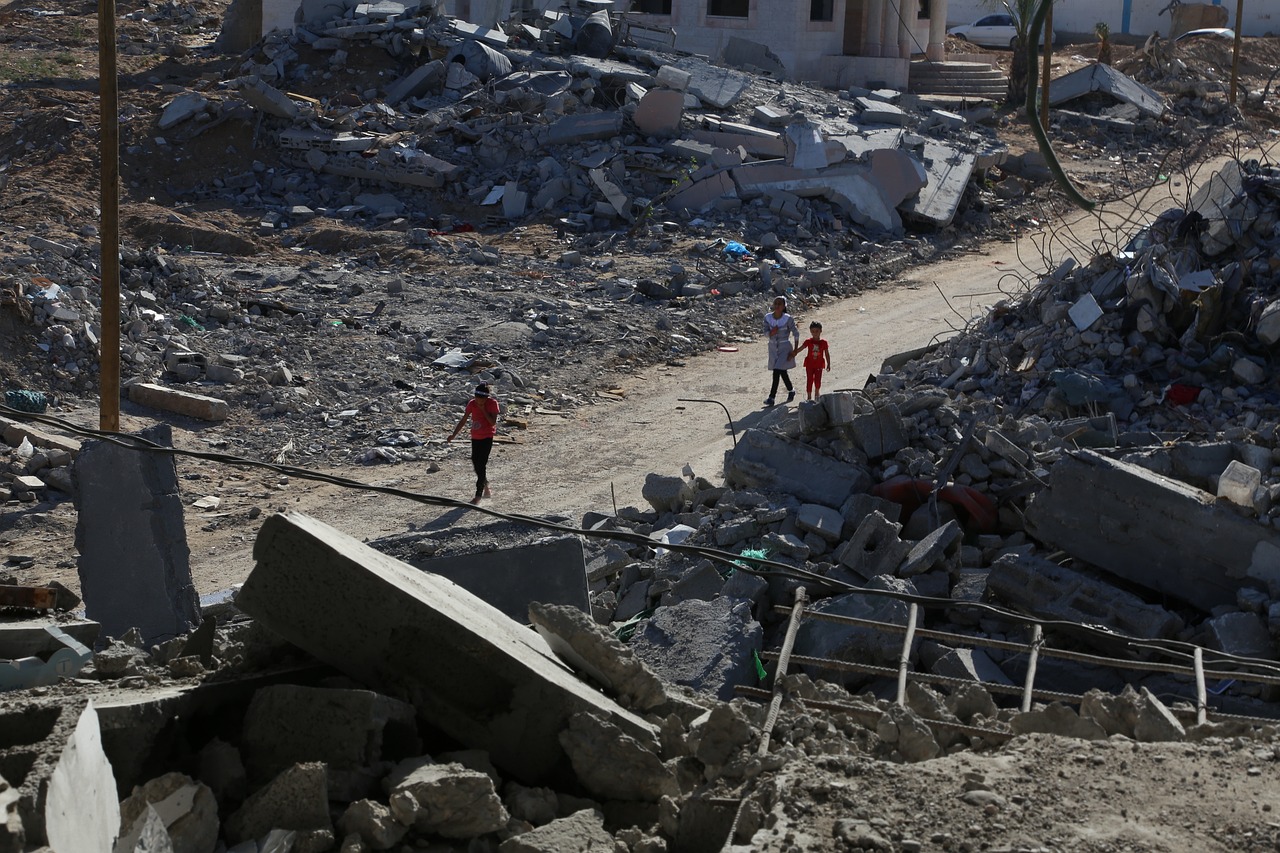
United Nations High Commissioner for Human Rights Volker Türk warned Oct. 25 that “the darkest moment of the Gaza conflict is unfolding in the north of the Strip.” Calling for urgent action by the international community, Türk stated: “Unimaginably, the situation is getting worse by the day. The Israeli Government’s…practices in northern Gaza risk emptying the area of all Palestinians. We are facing what could amount to…crimes against humanity.” Türk asserted that under the Geneva Convention, member states have “an obligation to act when a serious violation of international humanitarian law has been committed.”
South Africa continues to pursue proceedings against Israel at the International Court of Justice, charging that Israel is committing genocide in Gaza. Several countries, including Chile, Bolivia, Colombia, Mexico, Nicaragua, Spain, Turkey, Libya and Palestine have also filed declarations of intervention in support of the case. (Jurist)
See our last reports on accusations of genocide against Israel.
Photo: badwanart0/Pixabay via Jurist





Forced expulsion of Palestinians from north Gaza: reports
As Israel tightens its siege and intensifies its assault on northern Gaza, reports have emerged of Israeli forces entering shelters, separating men from women and children, and forcing people to move to the south of the enclave at gunpoint. Video footage has also emerged of long lines of Palestinians making their way through the devastated landscape of northern Gaza, heading south. In an Oct. 20 statement reminding Israel that the International Court of Justice has ordered it to take all actions to prevent genocidal acts, the UN’s human rights office said Israel’s actions “may be causing the destruction of the Palestinian population in Gaza’s northernmost governorate.”
Israel’s campaign in the north has forced the World Health Organization to pause the final phase of a polio vaccination campaign in the area while worsening an already dire food shortage crisis throughout the enclave. In September, Israel allowed the lowest amount of aid and commercial goods into Gaza since March. “This sharp decline will profoundly limit food availability and the ability of families to feed themselves and access services in the next few months,” a new assessment by a group of UN-backed experts said, highlighting the continuing risk of famine in the enclave. (TNH)
Israeli Knesset bans UNRWA operations
Israel’s parliament voted Oct. 28 to ban the United Nations Relief & Works Agency for Palestine Refugees in the Near East (UNRWA), which has been crucial in delivering aid and services to millions of Palestinian refugees for nearly 80 years. The move carries potentially dire consequences for the Palestinian population living under Israeli jurisdiction, with fears that humanitarian assistance could collapse.
A first bill completely prohibits UNRWA from functioning within Israel’s borders, including its operations in East Jerusalem, while a second bill forbids any state authorities from engaging with UNRWA. The package, introduced earlier this month, passed by 92-10. The legislation revokes the Comay-Michelmore Agreement of 1967 that facilitated UNRWA activities in areas under Israeli jurisdiction. Prime Minister Benjamin Netanyahu acknowledged the importance of humanitarian aid but offered no clear alternative or plan for support in the region following the legislative decision.
The ban has been met with widespread alarm. UNRWA commissioner-general Philippe Lazzarini warned that the absence of their services would severely impact vulnerable civilians in Gaza, where they are already grappling with a humanitarian crisis. Particularly, he argued that the legislation would jeopardize the education of over 650,000 children in Gaza, essentially amounting to collective punishment. He added: “Failing to push back these bills will weaken our common multilateral mechanism established after World War 2. This should be a concern to all.”
US State Department spokesperson Matthew Miller emphasized the agency’s “irreplaceable role” in providing essential services, stating in a daily press briefing:
Apart from the UN and the US, Ireland, the UK and the EU all expressed similar concerns, and some ave criticized the legislation as violating international law. (Jurist)
Palestinians will not be allowed to return to north Gaza: IDF
Israeli ground forces are getting closer to “the complete evacuation” of northern Gaza and residents will not be allowed to return home, the Israel Defense Forces (IDF) said, in what appears to be the first official acknowledgment from Israel it is systematically removing Palestinians from the area.
In a media briefing Nov. 5 night, IDF Brig-Gen. Itzik Cohen told Israeli reporters that since troops had been forced to enter some areas twice, such as Jabaliya camp, “there is no intention of allowing the residents of the northern Gaza Strip to return to their homes.”
He added that humanitarian aid would be allowed to “regularly” enter the south of the territory but not the north, since there are “no more civilians left.” (The Guardian)